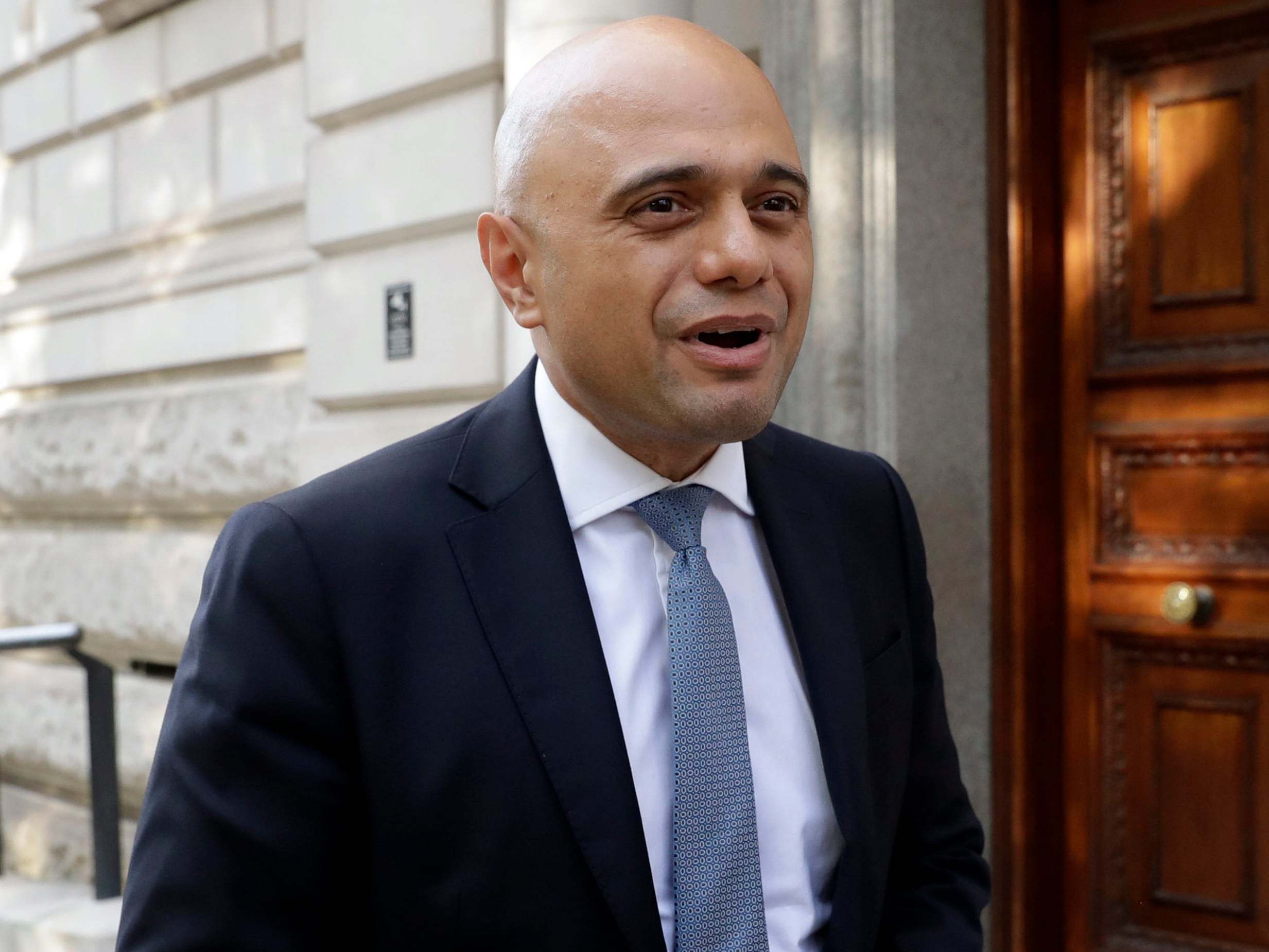Sajid Javid ‘set to break government’s strict spending rules’ with splurge of investment in public services
Economic downturn due to Brexit will reduce chancellor’s pot of cash, says Resolution Foundation

Your support helps us to tell the story
From reproductive rights to climate change to Big Tech, The Independent is on the ground when the story is developing. Whether it's investigating the financials of Elon Musk's pro-Trump PAC or producing our latest documentary, 'The A Word', which shines a light on the American women fighting for reproductive rights, we know how important it is to parse out the facts from the messaging.
At such a critical moment in US history, we need reporters on the ground. Your donation allows us to keep sending journalists to speak to both sides of the story.
The Independent is trusted by Americans across the entire political spectrum. And unlike many other quality news outlets, we choose not to lock Americans out of our reporting and analysis with paywalls. We believe quality journalism should be available to everyone, paid for by those who can afford it.
Your support makes all the difference.Sajid Javid is set to break the government’s spending rules when he announces the new Whitehall budgets next week, according to new analysis.
A splurge of expected spending on health, education and policing in the next year is likely to shatter the chancellor’s commitment to reducing debt as a proportion of GDP, according to the Resolution Foundation.
Mr Javid has committed to abiding by the previous government’s fiscal rules, including one that says that borrowing should fall below 2 per cent of GDP by 2020-21.
But the think-tank said Boris Johnson’s spending commitments already exceeded the amount that Mr Javid could spend within the rules.
According to the latest Office for Budget Responsibility forecasts, published in March, the chancellor should have had a pot of around £14bn for spending next year – easily enough to cover Mr Johnson’s pledges.
But the Resolution Foundation said that economic downgrades as a result of Brexit uncertainty and a global downturn meant the real figure was now just £4bn.
A series of cash boosts already announced by Mr Johnson total around £6bn next year, and on Friday the government announced a further £14bn of spending on schools, including £2.6bn next year, meaning the total cost is expected to be significantly higher when Mr Javid announces the new spending round on 4 September.
The Treasury has insisted that the spending round will meet the government’s fiscal rules, but the Resolution Foundation said this was unlikely to be the case.
In a new reported title “Breaking the Rules”, the think-tank said the spending round was likely to be the first since 2007 to result in government funding rising by more than inflation.
The study found that borrowing is expected to soar, with the government likely to accrue at least £10bn more than expected next year because of increasing public spending and Brexit uncertainty damaging the economy.
It said Mr Javid’s scope for spending within the fiscal rules was therefore used up even before planned tax cuts were factored in.
The Resolution Foundation said it would be better for ministers to openly announce that they are ramping up borrowing than break the rules they claim to be committed to following.
Torsten Bell, the Resolution Foundation’s chief executive, said: “Next week’s spending round will mark the end of a decade of spending cuts that have dominated political and economic debates. With the deficit now at a 17-year low, the chancellor can clearly afford to borrow more to spend on public services.
“But it is far less clear that he can afford to undermine economic credibility by professing to be bound by fiscal rules that are likely to be inconsistent with the scale of spending rises and tax cuts being planned.”
Dan Tomlinson, a policy analyst at the organisation, said: “While it may feel easy for the chancellor to plan to increase spending while saying he is committed to his predecessor’s fiscal rules, the reality is more complicated.
“The £14bn headroom the chancellor intends to spend has already been reduced to around £4bn by changes to the fiscal and economic outlook. What remains is likely to be more than exhausted by existing prime ministerial spending commitments, even before any further increases are announced in next week’s spending round.”
The Treasury has been contacted for comment.
Join our commenting forum
Join thought-provoking conversations, follow other Independent readers and see their replies
Comments